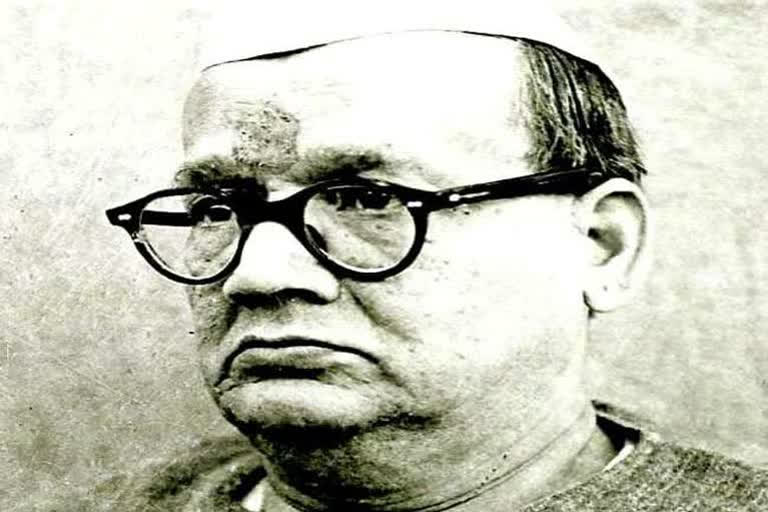Patna: Shri Krishna Singh, the first Chief Minister of Bihar, was a powerful leader belonging to the Bhumihar caste who occupied the post till his death in 1961. Born in 1887 in Nawada district, Singh was a socio-economic leader and one of the leading fighters of freedom struggle. Having served Bihar for fifteen long years, he never asked votes for himself.
He never visited his constituency to seek votes but always won by big margins owing to his great popularity and the sacrifices he made for the nation during the freedom struggle.
Although most of the Bihar Chief Ministers have created history due to their distinct identity and style of working, Shri Krishna Singh stands out different. He played a significant role in the reconstruction of the modern Bihar and had an immense contribution to the cultural and social development of the state. He successfully guided the state from 1946 to 1961 and it was during his regime, the state witnessed its first industrial revolution.
Known as the 'architect of modern Bihar', he was a simple man with high thinking. His principle was simple- "I have worked for the people, they should vote for me without asking".
READ: Denied ticket, BJP MLA 'Chokar Baba' gives up food
Shri Krishna Singh was a grassroots level leader and whenever he used to visit his native village, he ordered his security guards to stop outside. He used to say: “It is my village. There is no threat to me here.” According to the people, Shri Babu used to live a very simple life and used to help people in times of distress.
Singh is also known as 'Bihar Kesari' and he never compromised with his principles. The entire credit for abolishing the Zamindari system in Bihar goes to him. It was he who established the Rajendra Chatra Niwas at Calcutta for Bihari students, the Anugrah Narayan Institute of Social studies at Patna, Ravindra Bhawan at Patna, Lord Buddha’s statue at Rajgir Venu VanVihar as well as an orphanage of Muzaffarpur.
He played a vital in Salt Satyagraha. In 1937, he was elected as the member of Central assembly as well as the Bihar assembly. During his tenure, the Zamindari system was ended and also the establishment of Asia’s Engineering industry, Heavy Engineering Corporation and many more factories took place.
He passed away on 31st January 1961. In his honour in 1978, the Ministry of Culture started a science museum called Shri Krishna Science Centre. The biggest conference hall in Patna, Shri Krishna Memorial Hall is also named after him. As the creator of the new Bihar, the extraordinary hard work and his renunciation which will always continue to prolong for the nation’s love and public service.



